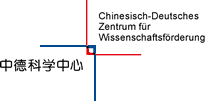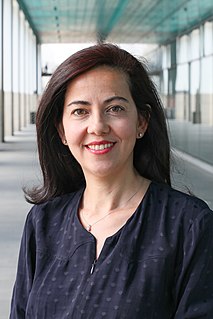Related Research Articles

Amalie Emmy Noether was a German mathematician who made many important contributions to abstract algebra. She discovered Noether's theorem, which is fundamental in mathematical physics. She was described by Pavel Alexandrov, Albert Einstein, Jean Dieudonné, Hermann Weyl and Norbert Wiener as the most important woman in the history of mathematics. As one of the leading mathematicians of her time, she developed some theories of rings, fields, and algebras. In physics, Noether's theorem explains the connection between symmetry and conservation laws.
Habilitation is a qualification required in order to conduct self-contained university teaching, and to obtain a professorship in many European countries. Despite changes implemented in European higher-education systems consequent to the Bologna Process, habilitation is the highest qualification issued through the process of a university examination, and remains a core concept of scholarly careers in these countries.

The German Research Foundation is a German research funding organization, which functions as a self-governing institution for the promotion of science and research in the Federal Republic of Germany. In 2019, the DFG had a funding budget of €3.3 billion.

The University of Bremen is a public university in Bremen, Germany, with approximately 23,500 people from 115 countries. It is one of 11 institutions which were successful in the category "Institutional Strategies" of the Excellence Initiative launched by the Federal Government and the Federal States in 2012. The university was also successful in the categories "Graduate Schools" and "Clusters of Excellence" of the initiative.

Baroness Ingrid Daubechies is a Belgian physicist and mathematician. She is best known for her work with wavelets in image compression.

Friedrich–Alexander University Erlangen–Nürnberg is a public research university in the cities of Erlangen and Nuremberg in Bavaria, Germany. The name Friedrich–Alexander comes from the university's first founder Friedrich, Margrave of Brandenburg-Bayreuth, and its benefactor Alexander, Margrave of Brandenburg-Ansbach.

Lenore Carol Blum is an American computer scientist and mathematician, formerly a distinguished career professor of computer science at Carnegie Mellon University. She is known for her contributions to the theory of real number computation, for her invention of a cryptographically secure pseudorandom number generator, and for her efforts to increase the diversity of mathematics and computer science.
Bhama Srinivasan is a mathematician known for her work in the representation theory of finite groups. Her contributions were honored with the 1990 Noether Lecture. She served as President of the Association for Women in Mathematics from 1981 to 1983. She earned her Ph.D. in physics in 1959 with her dissertation Problems on Modular Representations of Finite Groups under J. A. Green at the University of Manchester. She currently is a professor at the University of Illinois at Chicago. She has had five doctoral students. She has co-authored a number of papers with Paul Fong in modular representation theory and Deligne–Lusztig theory.

Carolyn S. Gordon is a mathematician and Benjamin Cheney Professor of Mathematics at Dartmouth College. She is most well known for giving a negative answer to the question "Can you hear the shape of a drum?" in her work with David Webb and Scott A. Wolpert. She is a Chauvenet Prize winner and a 2010 Noether Lecturer.
The Cluster of Excellence "Asia and Europe in a Global Context" is a research facility that has been funded in the framework of the German Universities Excellence Initiative of the federal state governments of Germany since October 2007. It is a trans- and interdisciplinary network of researchers affiliated with Heidelberg University. Key research areas of the Cluster are the processes of exchange between cultures of Asia and Europe, ranging from migration and trade to the formation of concepts and institutions.
Georgia McClure Benkart is an American mathematician who is known for her work in the structure and representation theory of Lie algebras and related algebraic structures. She has published over 100 journal articles and co-authored 3 American Mathematical Society Memoirs in four broad categories: modular Lie algebras; combinatorics of Lie algebra representations; graded algebras and superalgebras; and quantum groups and related structures.
The Hamburg Centre for Ultrafast Imaging (CUI) is a research facility established in the context of the Universities Excellence Initiative by the German Federal and State Governments. The multidisciplinary and interinstitutional cluster is located at Universität Hamburg, Hamburg, Germany, and has been initiated on 1 November 2012. The funding with more than €25 million by the German Research Foundation will run until 31. December 2018. Scientific teams cooperating in the cluster come from the Universität Hamburg, the Deutsches Elektronen-Synchrotron (DESY), the European XFEL GmbH (XFEL), the European Molecular Biology Laboratory (EMBL), and the newly founded Max-Planck-Institute for the Structure and Dynamics of Matter (MPSD). A full application for a second research period of seven years was handed in at the end of 2017 to the German Research Foundation (DFG) for discussion. After the successful application in 2018, the new cluster “CUI: Advanced Imaging of Matter” started in 2019.

The Sino-German Center for Research Promotion (SGC) is a research funding institution based in Beijing, established as a joint venture by the German Research Foundation and the National Natural Science Foundation of China (NSFC).

Iryna Gurevych is a German computer scientist. She is Professor at the Department of Computer Science of the Technical University of Darmstadt and Director of Ubiquitous Knowledge Processing Lab.

Mina Teicher is an Israeli mathematician at Bar-Ilan University, specializing in algebraic geometry.
The Werner Reichardt Centre for Integrative Neuroscience (CIN) is the common platform for systems neuroscience at the University of Tübingen in Germany. It was installed as a cluster of excellence within the framework of the Excellence Initiative in 2007/2008. About 90 scientists with their research groups – 21 of which are currently supported with excellence initiative funds – form the CIN's membership. The focus of their work is on basic research in systems neurobiology. Based on an interdisciplinary and integrative approach, it encompasses projects rooted in biology, medicine, physics, computer science and engineering as well as cognition and neurophilosophy.
Rupert Huber is a German physicist and University professor. Huber is known for his research in terahertz technology and semiconductor physics.

Hatice Altuğ is a Turkish physicist and professor in the Bioengineering Department and head of the Bio-nanophotonic Systems laboratory at École Polytechnique Fédérale de Lausanne (EPFL), in Switzerland. Her research focuses on nanophotonics for biosensing and surface enhanced spectroscopy, integration with microfluidics and nanofabrication, to obtain high sensitivity, label-free characterization of biological material. She has developed low-cost biosensor allowing the identification of viruses such as Ebola that can work in difficult settings and therefore particularly useful in case of pandemics.

Benedikt Paul Göcke is a German philosopher and theologian. He is University Professor for the Philosophy of Religion and Philosophy of Science at the Catholic Theological Faculty of the Ruhr University Bochum and an associate member of the Faculty of Theology and Religion at the University of Oxford. His research includes theoretical, practical and historical philosophy and can be divided into three main areas: philosophy of science and metaphysics, transhumanism and ethics of digitization, and German Idealism, in particular the philosophy of Karl Christian Friedrich Krause (1781–1832).

Eric Bodden is a German computer scientist and Professor for Secure Software Engineering at the Heinz Nixdorf Institute of Paderborn University and is Director of the Fraunhofer Institute for Mechatronic Design (IEM). He is also head of the engineering area in the Collaborative Research Centre 1119 CROSSING at the Technical University of Darmstadt.
References
- ↑ Wahn, Norbert (February 2, 2016). "Wie Wissen über Musik entsteht". Nordwest Zeitung.
- ↑ Webpage of the program
- ↑ Bergmann, Birgit (2012). Transcending Tradition: Jewish Mathematicians in German Speaking Academic Culture.
- ↑ Brink, Alfred; et al. (2011). Berufs- und Karriere-Planer Wirtschaft 2011 / 2012.
- ↑ Rompa, Regine (2014). Karriere am Campus.
- 1 2 Flyer "Emmy Noether Program"
- ↑ Hartung, Manuel (May 13, 2004). "Emmy-Noether-Stipendium: "Juniorprofessoren verlieren das Rennen"". Die Zeit.
- ↑ DFG report on the Emmy Noether Meeting 2016